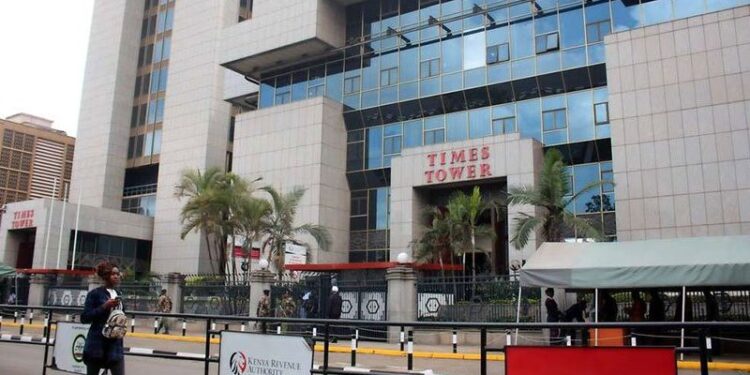Kenya’s tax system plays a critical role in the nation’s economic framework, directly affecting business operations and growth. For any entrepreneur or business owner in Kenya, understanding the tax structure and recent changes in regulations is essential to ensure compliance and avoid legal issues. This article provides a comprehensive breakdown of Kenya’s tax system, offering practical advice for businesses on how to manage their tax obligations effectively.
Overview of Kenya’s Tax System
Kenya operates under a progressive tax system, administered by the Kenya Revenue Authority (KRA). The KRA is responsible for collecting various types of taxes, including income tax, value-added tax (VAT), corporate tax, and excise duties. Taxes in Kenya are levied at both the national and county levels, with most taxes going to the central government, and some levied by counties.
The tax system is mainly divided into two categories: direct taxes and indirect taxes. Direct taxes include income tax, corporation tax, and capital gains tax, while indirect taxes cover VAT, excise duty, and customs duty.
Corporate Tax: What Business Owners Need to Know
Corporate tax in Kenya is levied on the profits of registered companies. The standard corporate tax rate is 30% for resident companies and 37.5% for non-resident companies with permanent establishments in Kenya. Small businesses registered under the turnover tax regime pay a rate of 1% on their gross sales.
Recent changes introduced by the Finance Act 2023 include tax incentives for companies involved in manufacturing and export processing, aiming to boost industrial growth. Companies that reinvest their profits into approved projects can benefit from reduced tax rates. Understanding these incentives can help businesses maximize their profitability.
Personal Income Tax for Business Owners
Business owners also need to be aware of personal income tax obligations, especially if they run sole proprietorships or partnerships where profits are taxed as personal income. The tax rates for individuals range from 10% to 30%, depending on income brackets. Recent updates to personal tax laws have expanded tax bands, which provides slight relief for middle-income earners.
Entrepreneurs should also be mindful of the Pay As You Earn (PAYE) system, which applies to employees’ income. As employers, business owners are responsible for deducting and remitting PAYE to KRA every month.
Value-Added Tax (VAT)
Value-Added Tax (VAT) is charged on the sale of goods and services in Kenya. The standard VAT rate is 16%, but some goods and services are taxed at a reduced rate of 8%, and certain essential goods, such as staple foods, are zero-rated or exempt. Businesses are required to register for VAT if their annual taxable turnover exceeds KES 5 million.
Recent VAT changes introduced an expansion of zero-rated goods and services, particularly in the agriculture and healthcare sectors, in a bid to ease the cost of living. Business owners in these industries can leverage these exemptions to reduce tax liabilities.
Turnover Tax for Small Businesses
Turnover tax (TOT) is a simplified tax regime for small businesses with annual revenues between KES 1 million and KES 50 million. The turnover tax rate is 1% of gross income, replacing the need for businesses to calculate and file income taxes based on profits. Businesses eligible for TOT are also exempt from VAT registration, simplifying compliance.
However, businesses must ensure they meet the criteria for TOT, as KRA actively monitors this category to ensure compliance. Proper record-keeping is essential to avoid underreporting of revenue.
Excise Duty and Customs Duty
Excise duty is levied on specific goods and services such as alcohol, tobacco, petroleum products, and telecommunication services. The rates vary depending on the type of product, and business owners in industries that deal with these products must be familiar with excise duty laws to comply with regulations.
Customs duty, on the other hand, applies to goods imported into Kenya, with rates typically ranging from 0% to 25%. Understanding customs duty rates and regulations is particularly important for businesses involved in international trade.
Capital Gains Tax (CGT)
Capital Gains Tax is imposed on the transfer of property and shares. The tax rate is set at 5%, and it applies to the gain made from selling an asset. Business owners selling land, buildings, or shares must be aware of their CGT obligations. The tax is payable by the seller, and failure to remit it within 30 days can result in penalties.
Recent amendments have clarified some aspects of CGT, particularly concerning the transfer of securities in certain sectors like real estate investment trusts (REITs).
Withholding Tax Obligations
Withholding tax is deducted at source on various types of income, such as dividends, interest, royalties, and payments for services provided by non-residents. The withholding tax rates vary depending on the type of payment and the residency status of the recipient.
Businesses must ensure they deduct and remit withholding tax when making payments to service providers or partners, especially when dealing with foreign contractors. This helps businesses stay compliant and avoid penalties for non-remittance.
Recent Changes in Tax Regulations
The Finance Act 2023 introduced several key changes affecting business taxation in Kenya. Among the most notable changes are the introduction of the Minimum Tax, which applies to businesses regardless of whether they make a profit or loss. The Minimum Tax rate is set at 1% of gross turnover and applies to businesses that do not qualify for TOT.
Another significant change is the introduction of the Digital Service Tax (DST), which targets businesses providing digital services such as streaming platforms, online marketplaces, and digital advertising. The DST is levied at 1.5% of gross revenue from digital services provided in Kenya.
Practical Advice for Tax Compliance
To remain compliant with tax laws, businesses should focus on proper record-keeping and timely filing of tax returns. KRA provides an online tax system called iTax, which allows businesses to file returns, pay taxes, and request compliance certificates easily. Business owners should ensure they register with iTax, as failure to file returns on time can result in hefty penalties.
It is advisable to consult with tax professionals or accountants who are familiar with the latest tax regulations in Kenya to help navigate the complexities of the tax system. Regularly checking KRA updates and the Finance Acts also helps business owners stay informed about regulatory changes.
Conclusion: Navigating Kenya’s Tax System
Understanding Kenya’s tax system is crucial for any business owner looking to operate successfully in the country. From corporate tax to VAT, excise duty, and recent developments like the Minimum Tax and Digital Service Tax, Kenyan businesses must stay informed to ensure compliance. By taking advantage of available tax incentives and keeping up with the latest tax reforms, businesses can optimize their tax management and avoid costly penalties.
Tax compliance is not just about paying taxes; it’s about planning, understanding the laws, and making informed decisions that benefit your business in the long run.





